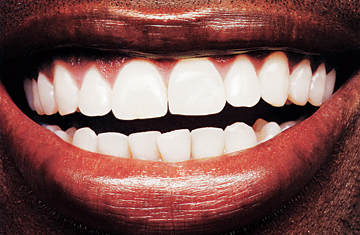
Blackness is, for some, religious. There are sacraments, saints and sinners in the National Church of Holy Blackness. In a new book, How to Be Black, the author is deeply concerned with blackness but is irreverent about our sacred identity and maybe even willing to give up the secrets of our religion. It is written by a church member who doesn't care: Baratunde Thurston, a comic who writes for the Onion, which loves slicing up sacred cows into burgers of funny. (He opens the chapter on his genealogy by saying, "My family has been black for a long, long time.") But more than just making jokes, Thurston is tapping into what one might call black irony.
Thurston's life has been stereotypically black in some ways. His father was killed while buying drugs, a tragic cliché. But it has also challenged stereotypes. He graduated from Harvard, where he majored in philosophy, and can often be found lecturing at technology conferences. This sort of dichotomy is increasingly common, and it confers an independence from the groupthink that still lurks in the pews of the Church of Blackness. That independence has contributed to the flowering of black irony. There is black comedy--Chris Rock--and black satire like In Living Color. But black irony is an outgrowth of postmodernism.
Black irony is about people using blackness as a text to comment on and perhaps critique or reconfigure it. It's about challenging and rejecting the notion of a hegemonic blackness. It's also about the relationship many blacks have with our past. Black history is filled with pain. Black irony admits that but seeks to reclaim the emotional response to those painful images and gain power over them. It says, I respect my ancestors, but I don't have to cry every time they're mentioned. In Thurston's list of 10 ways to celebrate Black History Month, he suggests using an image of slavery as a screensaver: "When your friends or co-workers ask you why you have a picture on your screen of slaves working the fields, you should smugly reply, 'I believe in honoring the people who made America possible, don't you?'"
I see this postmodern black irony in the work of Dave Chappelle's legendary Chappelle's Show, whose sketch about outtakes from Roots gave us actors playing actors playing slaves and screwing up, so we're laughing not at slavery but the failed attempt to solemnly portray slavery for TV. I also see it in the brilliant work of the visual artist Kara Walker, whose massive black-and-white images give us the sex and violence of slavery in gory detail, as if summoned from nightmares. Like Chappelle, she is talking not about slavery but about our response to it and how it sits in the contemporary collective mind.
I see black irony in the Web series Black Folk Don't by filmmaker Angela Tucker, which questions the notion of black normative behavior and comes to the conclusion that black folk don't agree on what blacks do and don't do. I see it in the iconography of Nicki Minaj, who, far from being "authentic," plays an over-the-top character. I see it in NBA star Kevin Durant's penchant for nerd chic, wearing glasses and a schoolboy backpack and thereby taking the air out of the black male imperative to always be masculine, tough and cool.
